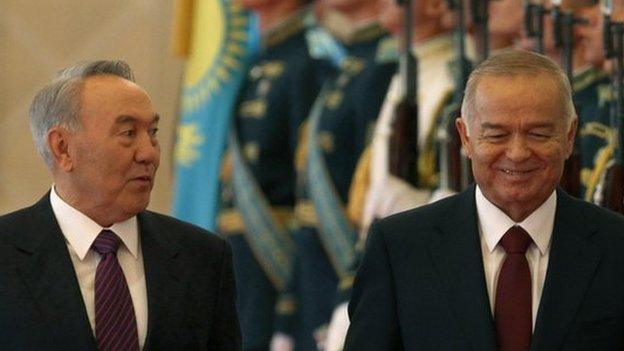Uzbekistan opens up on president's health
- Published
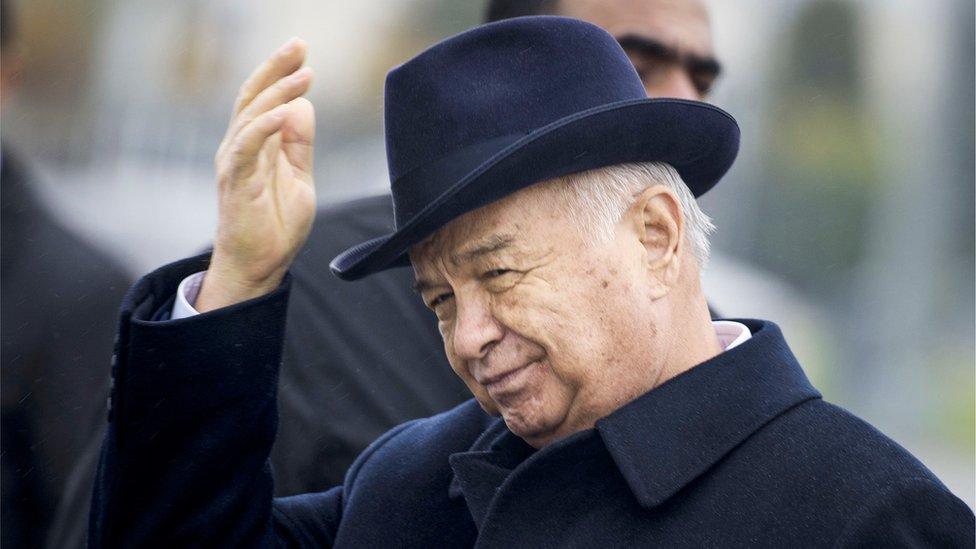
Rumours about Islam Karimov's health are not new; the confirmation certainly is
In Uzbekistan, information about the president's health is hidden from the public and treated like a state secret. That is why a report by the Cabinet of the Ministers confirming that Islam Karimov is "receiving inpatient treatment" is so shocking.
A day after Sunday's announcement, Mr Karimov's daughter, Lola Karimova-Tillyaeva, wrote on Instagram that he had suffered a brain haemorrhage.
His condition is stable, she said, but she went on to say it was "too early to make any predictions about his future health".
Rumours that Mr Karimov, 78, had had a stroke or a heart attack have circulated plenty of times in the past.
He has ruled since 1989, first as a communist party leader of Soviet Uzbekistan and then as a president after the country gained independence.
The rumours last emerged just before the 2015 presidential election, when he had not been seen in public for several weeks, fuelling rumours about his health.
Often, the sources of these rumours are members of the opposition in exile - the People's Movement of Uzbekistan and its leader, Muhammad Salih.
Up until now, the government has never commented. Occasionally, family members wrote on social media about the president's health, as his daughter just did.
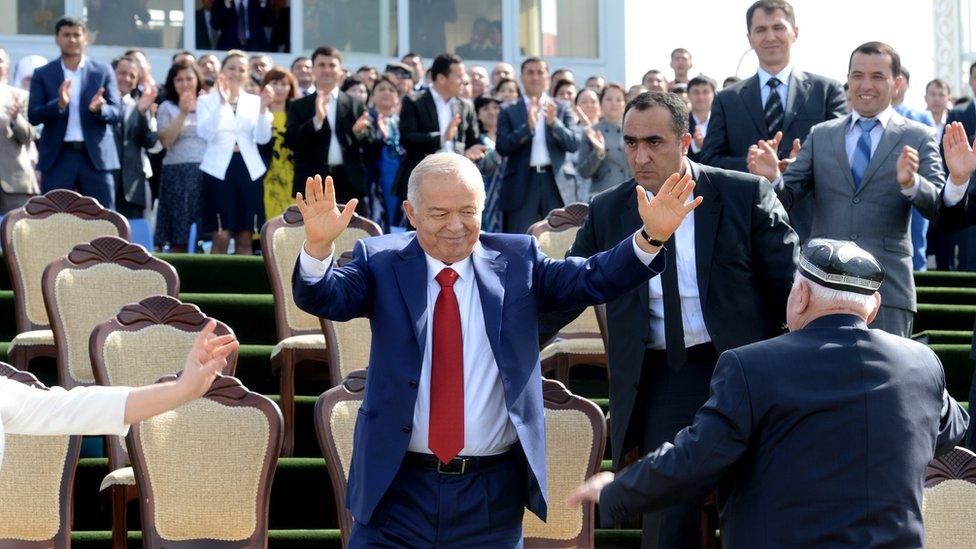
Islam Karimov's annual dance is always seen as a show of health
Because there is rarely any official information, Mr Karimov's public appearances have been seen as evidence of the state of his health.
That is probably why it became a tradition for him to dance during major holiday festivities.
By throwing up his hands to the rhythmic Uzbek folk song in front of a cheering crowd, the president sends a message to the nation: "Look at me, I am healthy and will rule the country for many more years."
'Karimov is the state'
Everyone in Uzbekistan was expecting Islam Karimov to show up again at the Independence Day celebrations on 1 September. Perhaps the government's confirmation that he is in hospital was a necessary move to prepare the public to the fact that the president would not appear at one of Uzbekistan's biggest holidays. This raises even more questions about Mr Karimov's health.
But there is no panic among the people, says Surat Ikramov, a Tashkent-based human rights defender. "There is even some indifference," he says.
"People do discuss the news, of course, maybe by whispering or asking each other quietly. However, there are very few political activists left in the country [to question the government]."
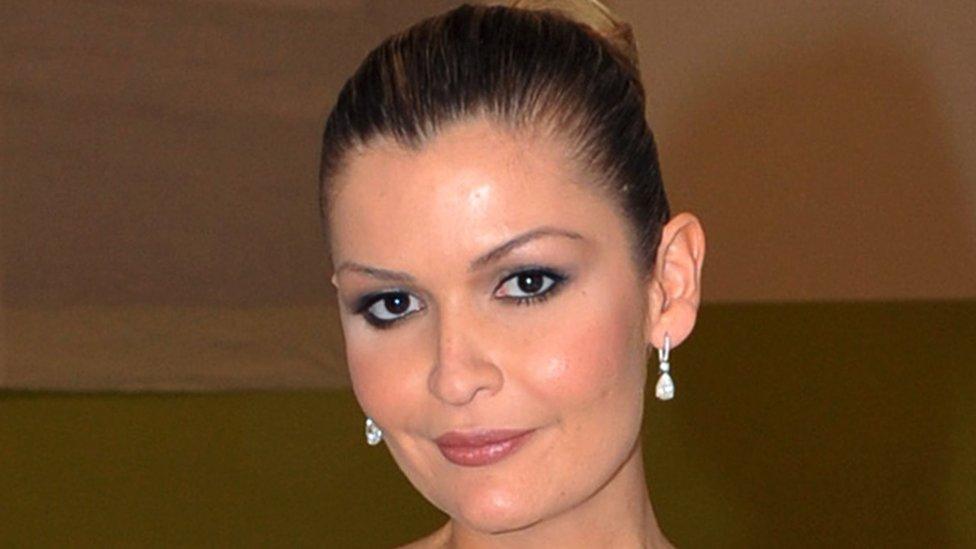
Mr Karimov's daughter, Lola, has been quick to discuss her father's health in recent days
Uzbekistan is one of the most repressive states in the world, according to human rights organisations. Freedom House regularly ranks it among "the worst of the worst" in its "Freedom in the World" reports.
The absence of freedom of information results in constant fear of discussing topics that could be seen as politically sensitive, including the president's health.
Even though Mr Karimov's hospitalisation was officially confirmed, most citizens are too afraid to talk about it openly, and local media were too cautious to report the announcement as breaking news.
This is not surprising, since discussing the president's health is seen as a threat to the government, says Steve Swerdlow from Human Rights Watch.
"It's been important for all authoritarian rulers to project strength at all times," says Mr Swerdlow. "Certainly any vocalisation that Karimov's power is not absolute has been seen as a threat to the entire system."
That is what makes this announcement so unprecedented.
"There has never been an official acknowledgment of the fact that there will need to be another leader at some point," Mr Swerdlow says.
"Even if he survives this illness or whatever it is, this is an acknowledgement of [Mr Karimov's] mortality, and of the fact that the system is about to change. Because, make no mistake, Islam Karimov is the state and the state has been Islam Karimov for the last quarter century."
- Published29 August 2016
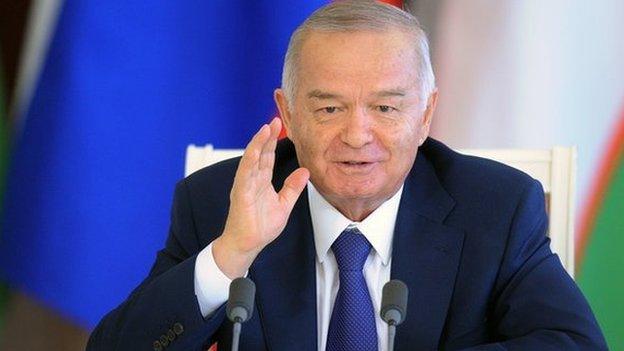
- Published8 December 2015
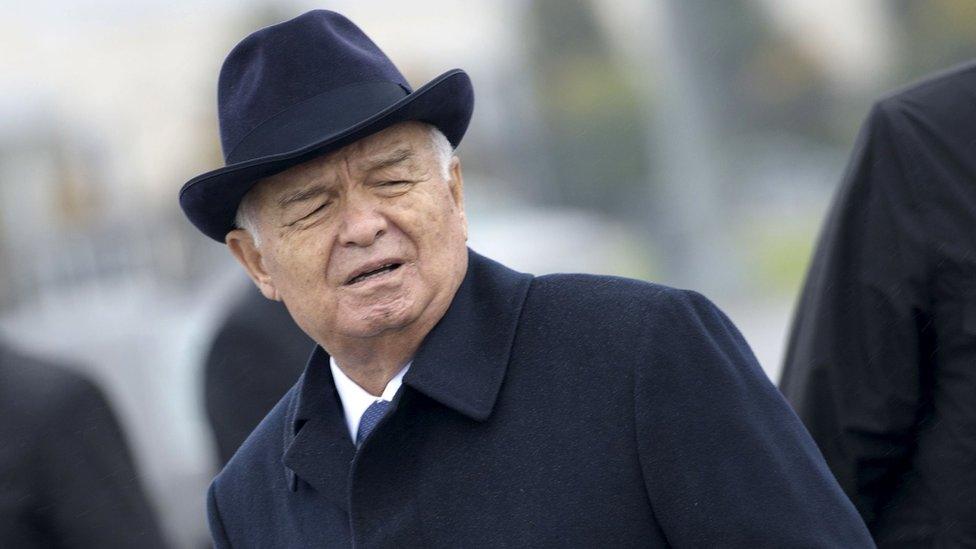
- Published9 March 2015
